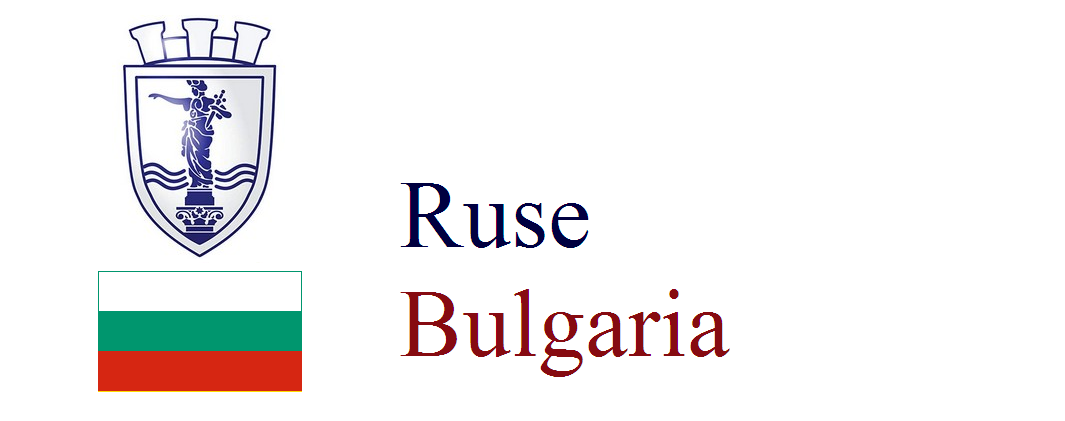Ruse (Bulgaria)

Ruse is the fifth largest city in Bulgaria, and the seat of the Ruse Province. It is located in the north of Bulgaria, on the right bank of the Danube, and it has about 165,000 inhabitants.
Twinning agreement between Ruse and Bijeljina was signed in 2009.
HISTORY
The first traces of human life in this area date back to the Neolithic. The later Thracian settlement developed into a Roman military centre Sexaginta Prista (a city of 60 ships), which was a part of the north boundary of the Roman province Moesia. The fortification was destroyed by Avar and Slavic raids in the 6th century.
During the time of the First (9th – 11th century) and Second Bulgarian Empire (12th – 14th century), a fortified settlement called Rusi, first mentioned in 1380, emerged near the ruins of the earlier Roman town. It soon developed into an important trade centre, but it was conquered and destroyed by the Turks in 1388. During the centuries of the Turkish rule Ruse was rebuilt and it became one of the most important Turkish administrative, trade, and military centres in the Danube region, and in the 18th century it became the centre of the Danubian Vilayet, which extended to Sofia and Niš. The first newspaper in Bulgarian was printed here. They built hospitals, nursing homes, post offices, and the first modern agricultural farm in the Turkish Empire was built here. There were five consulates of the most important European countries in the city. Together with the rise of the city’s importance for Turkey, Ruse became the centre of Bulgarian national movement, and the city hosted the headquarters of the Bulgarian Revolutionary Central Committee.
Finally, in 1878, during the Russo-Turkish War, the Russian troops liberated Ruse, which became the largest city in the newly established Principality of Bulgaria, and a key economic and cultural centre. Intensive building changed the city's architectural appearance to a typical Central European one. Regulations for Constructions of Private Buildings of 1893, issued by the Municipality of Ruse, prescribed that “all façades on main streets of Ruse shall have rich decorations with plastic stone”.
The period between the two world wars was marked by stagnation, and in the second half of the 20th century, thanks to the rapid industrialisation and building the bridge over the Danube, Ruse became an important economic, traffic, cultural, and educational centre again. According to the census of 1985 the city had over 185,000 inhabitants.
ECONOMY
Ruse is one of the most important industrial centres in Bulgaria and one of the first industrial zones in Bulgaria was developed here. Light industry – chemical, textile, and food industries prevail in the city’s economy. Machinery engineering and shipbuilding are also developed.
Ruse is important for transport and traffic, since it is the most important Bulgarian river port, and the only bridge over the Danube between Romania and Bulgaria is located in the city. Pan-European corridors 7 and 9 go through Ruse.
SIGHTS
The City of Ruse is known for neo-baroque and neo-rococo architecture of 19th and 20th centuries, and it attracts many tourists. Monument of Freedom from 1906 is the symbol of the city.
There is a monastery dedicated to Saint Dimitar Basarbovski near the city. It is built inside the rock, and it was first mentioned in 1431.
EDUCATION AND CULTURE
Twelve thousand students study at the “Angel Kanchev” University of Ruse. “Sava Ognianov” Theatre, State Puppet Theatre, and Opera and Philharmonic Society, numerous museums and galleries are all very important for the culture.
The most important cultural events are the international music festival for classical music – March Music Days, Sexaginta Prista Summer Stage – urban festival (from May to October), Saint George’s Days Fair, Carnival and a masquerade (24 June), Autumn Art Salon (second half of September), media fair “BG MediaMarket”, and media festival “Bulgarian Europe” (end of October).
The patron saint of the city is Saint George, and 6th May is celebrated as the City Day.
INTERNATIONAL COOPERATION
In addition to Bijeljina, the City of Ruse is a sister city / twin town of: Volgograd (Russia), Giurgiu (Romania), Peristeri (Greece), Saint-Ouen-sur-Seine (France), Huainan (China), Lisbon (Portugal), Bratislava (Slovakia), and Trogir (Croatia).
LINKS
https://obshtinaruse.bg/en/
https://en.wikipedia.org/wiki/Ruse,_Bulgaria

